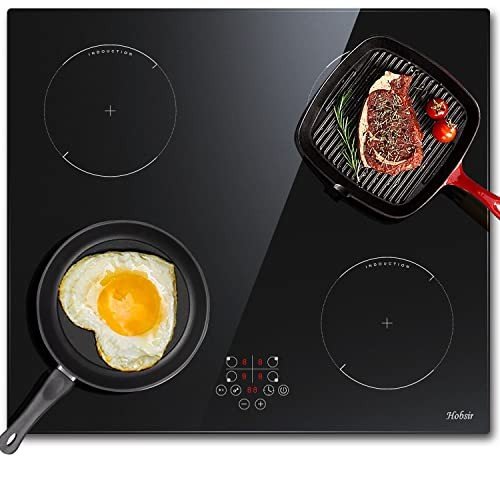The Comprehensive Guide to Sales Ovens: Understanding Their Importance, Types, and Best Practices
Sales ovens, a category of industrial cooking equipment, are essential players in the cooking and foodservice market. These home appliances, developed to prepare food in large quantities efficiently, are essential in dining establishments, catering services, and other food facilities. This post looks into the significance of sales ovens, their types, and best practices for picking and using them effectively.
What Are Sales Ovens?
Sales ovens, broadly specified, are cooking devices used mostly in business kitchen areas to cook, bake, or heat different food items at scale. Their style allows them to handle greater volume cooking compared to standard property ovens. Provided the nature of food service, sales ovens typically integrate advanced technologies that promote speed, efficiency, and even cooking.
Importance of Sales Ovens in the Food Industry
Sales ovens play an essential role in food production for many factors:
- Efficiency: Sales ovens can prepare food quicker and uniformly than conventional ovens, permitting chefs to prepare meals in less time.
- Consistency: With accurate temperature controls, sales ovens make sure that the food is prepared uniformly each time, keeping quality across thousands of servings.
- Adaptability: Many sales ovens can deal with numerous cooking methods including baking, roasting, broiling, and even steaming, making them suitable for diverse menus.
- Energy Savings: Modern sales ovens are typically created to be energy-efficient, lowering functional costs for services.
Types of Sales Ovens
The marketplace offers a variety of sales ovens, each matched for particular cooking needs and kinds of food. Here are the most common types:
| Type of Oven | Description | Best For |
|---|---|---|
| Convection Ovens | Utilize a fan to circulate hot air, guaranteeing even cooking. | Baking and roasting products. |
| Combi-Ovens | A mix of convection and steam cooking, providing flexibility in cooking methods. | Varied menus requiring steaming and baking. |
| Conveyor Ovens | Utilize a moving belt to constantly cook food, suitable for high-volume operations. | Quick food and pizza. |
| Deck Ovens | Feature separate compartments (decks) that can be individually controlled, offering high efficiency. | Artisan bread and pastries. |
| Rotisserie Ovens | Developed to slowly roast meat on a spit, providing tender and juicy results. | Roasted meats. |
Choosing the Right Sales Oven
Choosing the appropriate sales oven for a particular organization requires consideration of a number of aspects:
- Volume Needs: Assess the volume of food that requires to be prepared. Higher volume suggests choosing conveyor or combi-ovens.
- Menu Diversity: Understanding what kind of dishes will be prepared can guide the choice procedure. For Ovens Sales , a bakeshop might need a deck oven, while a diner may benefit from a convection oven.
- Area Availability: Measure kitchen area to make sure the ovens fit properly and have required ventilation.
- Budget: Commercial ovens can vary significantly in price, so develop a spending plan that thinks about long-term functional savings.
- Energy Efficiency: Opt for ovens that have energy ratings to keep utility costs manageable.
Best Practices for Using Sales Ovens
Successfully running a sales oven includes more than simple usage. Here are some best practices to bear in mind:
- Regular Maintenance: Schedule regular maintenance to clean and examine the performance of the oven. This ensures durability and efficiency.
- Preheating: Always pre-heat the oven to the wanted temperature before placing food inside for consistent cooking results.
- Make use of Thermometers: For accuracy, use an oven thermometer to make sure that temperature levels stay consistent, particularly for baking.
- Follow Cooking Times: Adhere to recommended cooking times based on the kind of food being prepared. Changes might be needed for different ovens.
- Prevent Overcrowding: Ensure sufficient space around food products in the oven to permit for proper air flow.
The Future of Sales Ovens
As technology advances, so do the abilities of sales ovens. Innovations such as wise technology, energy-efficient styles, and enhanced safety features are ending up being more popular. These developments promise to improve cooking effectiveness while likewise satisfying sustainability goals.
FAQs about Sales Ovens
Q1: How do I tidy my sales oven?
A: Regular cleansing includes getting rid of any food debris, cleaning down surface areas with non-corrosive cleaners, and following particular cleaning recommendations from the producer.
Q2: What's the lifespan of a business oven?
A: Typically, a properly maintained business oven can last anywhere from 10 to 20 years, depending on use and upkeep.
Q3: Can sales ovens be used for baking?
A: Yes, many kinds of sales ovens, especially convection and deck ovens, are specifically developed for baking a variety of products.
Q4: Are there energy-efficient choices for sales ovens?
A: Yes, several manufacturers offer energy-efficient designs that minimize energy consumption without sacrificing efficiency.
Q5: How often should I perform maintenance on my sales oven?
A: It's advisable to perform routine maintenance checks each month or quarter, depending on use levels. In addition, an extensive inspection must happen a minimum of annually.
Sales ovens are vital in the modern-day cooking landscape. Their ability to prepare big amounts of food effectively makes them important for dining establishments, catering services, and other food facilities. By comprehending the various types, choosing the right oven, and adhering to best practices, food service organizations can optimize their cooking processes, enhance their offerings, and eventually delight their clients with exceptional culinary creations.

